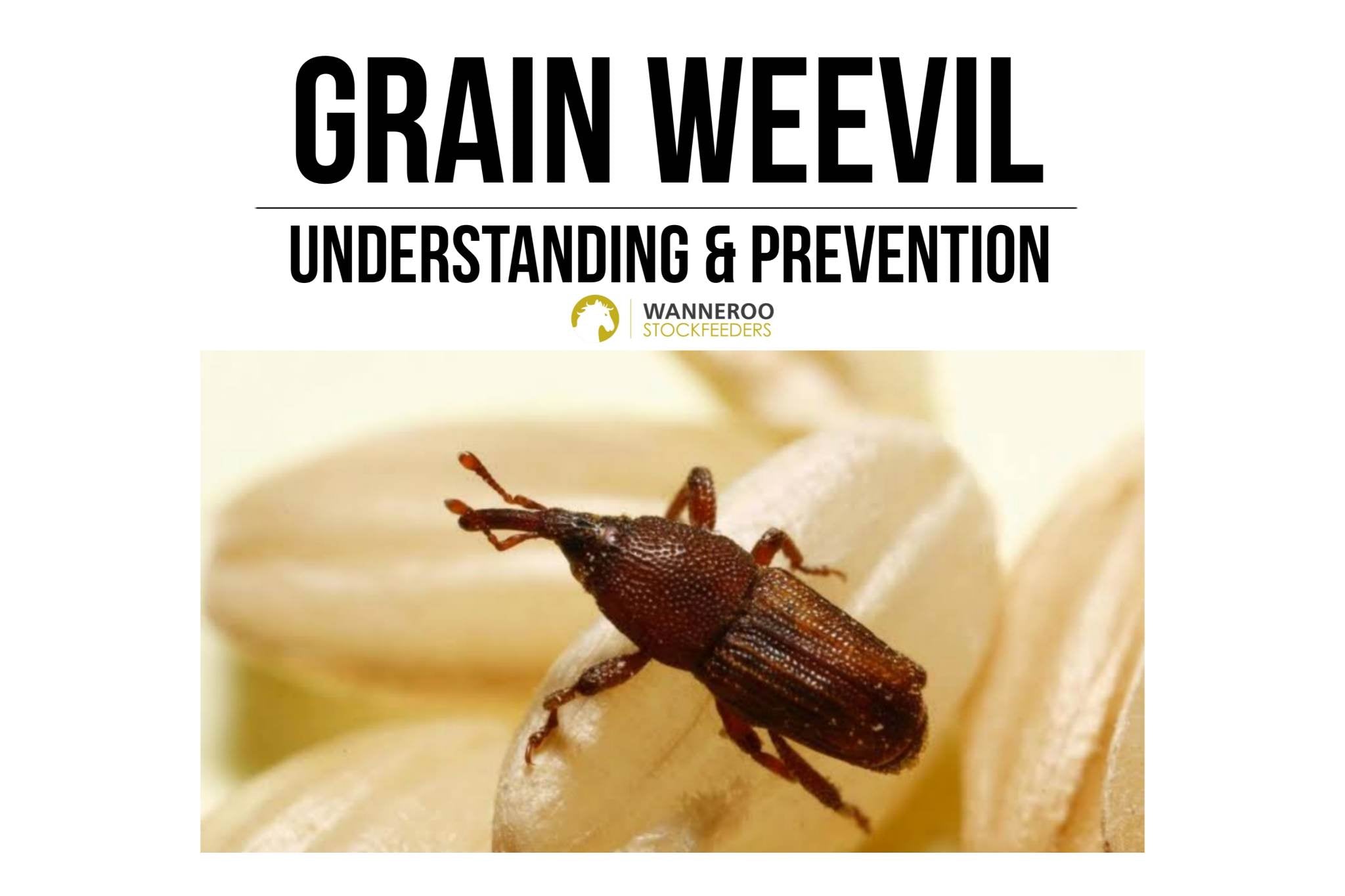Hello, Charlotte here!
As its that time of year when weevils are extremely present in horse feeds I thought I would share more information about them as well as ways to keep them at bay in your feed sheds. I have been running Wanneroo Stock Feeders for almost 12 years now and when I first took over, no one told me how much of a problem these can actually be if left untreated. Safe to say after losing $1000's worth of stock in my first year of running the shop, I've done my research and implemented methods to guarantee our customers the best quality products we can.
There are plenty of food safe products that can be used to keep weevils at bay as well as correct methods to store feed. Weevils live inside and damage whole grain kernels; however, neither they nor other bugs commonly found in grain pose a risk to your horse. That said, such bugs could lower the feed’s nutritional content.
What is a Grain Weevil?
The Grain Weevil or wheat weevil (Sitophilus granarius), also known as the granary weevil, is an insect that feeds on cereal grains, and is a common pest in many places.


Above is a grain of wheat to show you the size of the weevil
The females will lay between 200 - 300 eggs every 30 days. Females drill a hole in the kernel, deposit an egg, and seal the hole with a gelatinous secretion. In about 30 days the grain weevil will pupate and drill its way out to find a mate and that's how an infestation starts. Adults can live up to 8 months laying around 6000 eggs in that time.
Stock Monitoring & Control
At Wanneroo Stock Feeders we check each pallet of feed that comes into our store. If there is any sight of live weevils we will send the pallets back to the suppliers and make sure they are aware of their problem. We have monthly pest control that sprays the floors & walls of our store with food safe insecticides to reduce the risk of spread as well as fumigating the store if there is larger amounts of weevils found.
We use Permethrin based sprays to fumigate. Permethrin is used in a number of ways to control insects. Products containing permethrin may be used in public health mosquito control programs. They may be used on food and feed crops, on ornamental lawns, on livestock and pets, in structures and buildings, and on clothing. Permethrin may also be used in places where food is handled, such as restaurants. This is the same chemical that is used to fumigate fruit and veg in supermarkets.

If you have feed that looks like this picture above, i would dispose of it as soon as possible. You can dispose of it by burying it nice and deep or throw away in an air tight container.
What you can do to reduce the risk of infestation
First of all, if you get home and there are weevils crawling out of the bag of feed you have just purchased, you should let the retailer know as soon as possible (with photos) so they can get on top of the problem asap and can offer a replacement. Some retailers will try and tell you that its normal and everyone has the same problem but that just comes down to lack of prevention and lack of concern for quality. However a weevil here and there may get through as their eggs are very well protected inside the grain kernel and can hatch any day.
- Store feed in a sealed container as soon as you bring it home. Anything made of thin plastic, cardboard or even wood can be drilled through by a grain weevil. Containing the infestation to one drum is easier than having them through the entire feed shed.
- Buy feed regularly instead of bulk buying. This ensure adequate rotation and time in-between deliveries to clean and spray the floor of the feed shed. Prevention is better than a cure and failing to keep your feed shed clean is asking for an infestation. There are plenty of other invasive pests that can come from soil and other external areas.
- Freeze or refrigerate bags for 1 week. As its quite a luxury to have a fridge or freezer at the stables, this option probably wont be available for everyone, not to mention that giving up beer space isnt always ideal but the cold temperatures will guarantee that the weevils eggs and adults will die and not spread.
Main things to take away from this
Weevils wont kill your horse or make them sick.
Monthly feed shed cleaning is something that we should all be doing, especially with snakes, mice & rats... etc.
Using pest sprays on the floors and walls is good preventative (not directly onto the feeds unless is permethrin based and dried before feeding)





